-
 Bitcoin
Bitcoin $82,509.8850
-2.52% -
 Ethereum
Ethereum $1,800.3816
-3.46% -
 Tether USDt
Tether USDt $0.9996
-0.02% -
 XRP
XRP $2.0537
-1.80% -
 BNB
BNB $589.5226
-1.44% -
 USDC
USDC $1.0000
0.02% -
 Solana
Solana $116.3439
-6.85% -
 Dogecoin
Dogecoin $0.1595
-5.58% -
 Cardano
Cardano $0.6479
-2.79% -
 TRON
TRON $0.2366
-0.33% -
 Toncoin
Toncoin $3.5766
-9.59% -
 UNUS SED LEO
UNUS SED LEO $9.3922
-0.34% -
 Chainlink
Chainlink $12.7758
-5.57% -
 Stellar
Stellar $0.2586
-2.92% -
 Avalanche
Avalanche $18.1038
-3.99% -
 Sui
Sui $2.2274
-5.69% -
 Shiba Inu
Shiba Inu $0.0...01219
-1.98% -
 Hedera
Hedera $0.1627
-3.05% -
 Polkadot
Polkadot $4.0427
-1.01% -
 Litecoin
Litecoin $82.8658
-2.85% -
 MANTRA
MANTRA $6.3993
1.10% -
 Bitcoin Cash
Bitcoin Cash $298.9153
-0.95% -
 Bitget Token
Bitget Token $4.4795
-2.24% -
 Dai
Dai $0.9999
0.01% -
 Ethena USDe
Ethena USDe $0.9994
-0.04% -
 Hyperliquid
Hyperliquid $11.7782
-8.21% -
 Monero
Monero $212.0245
-3.58% -
 Pi
Pi $0.5720
-14.14% -
 Uniswap
Uniswap $5.8118
-4.56% -
 Aptos
Aptos $5.0504
-4.12%
How to profit from NFT smart contract development?
Developers can profit from NFT smart contracts by offering custom solutions, audits, templates, and consulting services in the booming cryptocurrency ecosystem.
Apr 03, 2025 at 10:28 am
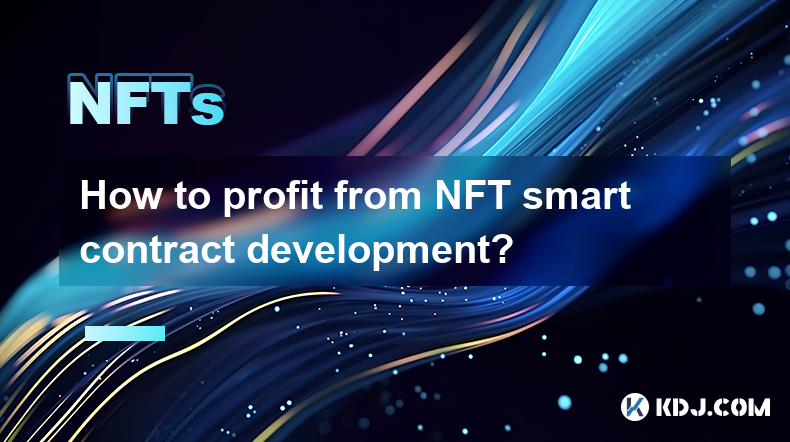
The world of Non-Fungible Tokens (NFTs) has exploded in popularity, creating new opportunities for developers to profit from their skills in smart contract development. By understanding the intricacies of NFT smart contracts, developers can tap into this lucrative market. This article will explore various strategies and methods for profiting from NFT smart contract development, focusing on the cryptocurrency ecosystem.
Understanding NFT Smart Contracts
NFT smart contracts are the backbone of the NFT ecosystem. These contracts, written in languages like Solidity for Ethereum, define the rules and functionalities of NFTs. They manage the creation, ownership, and transfer of unique digital assets. To profit from NFT smart contract development, it's essential to have a deep understanding of how these contracts work, their security considerations, and the standards like ERC-721 and ERC-1155 that govern them.
Developing Custom NFT Smart Contracts
One of the primary ways to profit from NFT smart contract development is by offering custom solutions. Many artists, brands, and projects seek unique NFT implementations that go beyond standard templates. Here's how you can approach this:
- Identify Client Needs: Understand what the client wants to achieve with their NFTs. This could be unique features like royalty splits, time-locked NFTs, or integration with other blockchain services.
- Design and Develop: Create a smart contract tailored to the client's specifications. Ensure it is secure, efficient, and aligns with the client's vision.
- Testing and Deployment: Thoroughly test the contract on testnets before deploying it to the mainnet. Provide detailed documentation and support to the client.
Offering NFT Smart Contract Audits
Security is paramount in the blockchain world, and NFT smart contracts are no exception. By offering audit services, you can help clients ensure their contracts are secure and free from vulnerabilities. Here are some steps to consider:
- Learn Security Best Practices: Stay updated on common vulnerabilities and best practices for securing smart contracts.
- Conduct Comprehensive Audits: Use automated tools and manual code review to identify potential issues.
- Provide Detailed Reports: Offer actionable insights and recommendations to improve the contract's security.
Creating and Selling NFT Smart Contract Templates
Another profitable avenue is developing and selling pre-built NFT smart contract templates. These templates can cater to common use cases and save clients time and money. To succeed in this area:
- Design Versatile Templates: Create templates that are customizable and can be used for various types of NFTs, such as art, music, or collectibles.
- Ensure Security and Efficiency: Prioritize security and optimize gas usage to make your templates attractive to potential buyers.
- Market Your Templates: Use platforms like OpenZeppelin or GitHub to showcase and sell your templates. Engage with the community to gather feedback and improve your offerings.
Building NFT Marketplaces
Developing an NFT marketplace can be a lucrative venture. By creating a platform where users can mint, buy, and sell NFTs, you can generate revenue through transaction fees and other monetization strategies. Here's how to approach this:
- Choose a Blockchain: Decide which blockchain to build on, considering factors like scalability, cost, and community support.
- Develop the Marketplace: Create a user-friendly interface and integrate it with your smart contracts. Ensure the platform supports various NFT standards.
- Implement Monetization Strategies: Consider charging listing fees, transaction fees, or offering premium features for a subscription.
Offering NFT Consulting Services
As the NFT space grows, many individuals and businesses seek expert advice on how to navigate it. By offering consulting services, you can leverage your expertise in NFT smart contract development to help clients succeed. Here's how to get started:
- Identify Your Niche: Focus on a specific area within the NFT ecosystem, such as art, gaming, or real estate.
- Develop Case Studies: Showcase your past projects and successes to build credibility.
- Network and Market Your Services: Attend industry events, engage on social media, and use platforms like LinkedIn to connect with potential clients.
Participating in NFT Projects
Another way to profit from NFT smart contract development is by actively participating in NFT projects. This can involve contributing to open-source projects, joining teams, or even launching your own NFT initiatives. Here are some strategies:
- Contribute to Open-Source Projects: Gain experience and visibility by contributing to popular NFT projects on platforms like GitHub.
- Join NFT Teams: Look for opportunities to work with established NFT projects, either as a freelancer or full-time developer.
- Launch Your Own NFT Project: Use your skills to create and market your own NFTs, leveraging your understanding of smart contracts to ensure success.
Monetizing Educational Content
The demand for education in the NFT space is high, and developers can profit by creating and selling educational content. This can include courses, tutorials, and guides on NFT smart contract development. Here's how to approach this:
- Identify Your Audience: Determine who your target audience is, whether beginners, intermediate developers, or advanced professionals.
- Create High-Quality Content: Develop comprehensive courses that cover everything from the basics of smart contracts to advanced NFT development techniques.
- Choose the Right Platform: Use platforms like Udemy, Coursera, or your own website to host and sell your content.
Leveraging NFT Smart Contract Development for DeFi Integration
Integrating NFTs with decentralized finance (DeFi) can open up new revenue streams. By developing smart contracts that enable NFTs to interact with DeFi protocols, you can create innovative financial products. Here's how to approach this:
- Understand DeFi Protocols: Gain a deep understanding of existing DeFi protocols and how they can be integrated with NFTs.
- Develop DeFi-NFT Smart Contracts: Create smart contracts that allow NFTs to be used as collateral, yield farming assets, or other financial instruments.
- Market Your Solutions: Engage with the DeFi community and showcase how your smart contracts can enhance their projects.
Building NFT Gaming Platforms
The intersection of NFTs and gaming is a rapidly growing sector. By developing smart contracts for NFT-based games, you can tap into this lucrative market. Here's how to get started:
- Design Game Mechanics: Create engaging game mechanics that utilize NFTs, such as in-game assets or characters.
- Develop NFT Smart Contracts: Write smart contracts that manage the creation, ownership, and transfer of in-game NFTs.
- Integrate with Gaming Platforms: Ensure your smart contracts can be seamlessly integrated with popular gaming platforms and engines.
Offering NFT Smart Contract Maintenance and Upgrades
As NFT projects evolve, they often require maintenance and upgrades to their smart contracts. By offering these services, you can establish long-term relationships with clients and generate recurring revenue. Here's how to approach this:
- Monitor Contract Performance: Regularly check the performance and security of deployed smart contracts.
- Implement Upgrades: Develop and deploy upgrades to enhance functionality or fix issues.
- Provide Ongoing Support: Offer continuous support to ensure the smooth operation of the smart contracts.
Collaborating with Artists and Creators
Working directly with artists and creators can be a rewarding way to profit from NFT smart contract development. By helping them bring their visions to life, you can build a portfolio of successful projects. Here's how to approach this:
- Network with Creators: Attend art and tech events, engage on social media, and join relevant online communities to connect with artists and creators.
- Understand Their Vision: Take the time to understand what the creator wants to achieve with their NFTs and how you can help them succeed.
- Develop Tailored Solutions: Create custom smart contracts that align with the creator's vision and enhance the value of their NFTs.
Exploring NFT Fractionalization
NFT fractionalization is a growing trend that allows multiple investors to own a piece of a high-value NFT. By developing smart contracts that enable fractional ownership, you can tap into this market. Here's how to approach this:
- Understand Fractionalization Mechanics: Learn how fractional ownership works and the legal and technical considerations involved.
- Develop Fractionalization Smart Contracts: Create smart contracts that manage the creation, ownership, and transfer of fractionalized NFTs.
- Market Your Solutions: Engage with investors and creators interested in fractionalizing their NFTs and showcase how your smart contracts can facilitate this.
Building NFT Analytics Platforms
As the NFT market grows, there is an increasing demand for analytics platforms that provide insights into NFT performance and trends. By developing smart contracts that feed data into these platforms, you can create a valuable service. Here's how to approach this:
- Identify Key Metrics: Determine what metrics are most valuable to NFT investors and creators, such as sales volume, price trends, and rarity scores.
- Develop Data Collection Smart Contracts: Create smart contracts that collect and process NFT data in real-time.
- Integrate with Analytics Platforms: Ensure your smart contracts can be seamlessly integrated with existing analytics platforms or develop your own.
Offering NFT Smart Contract Customization Services
Many NFT projects start with standard templates but later require customization to meet their specific needs. By offering customization services, you can help these projects evolve and improve. Here's how to approach this:
- Understand Project Requirements: Work closely with the project team to understand their current smart contract setup and what customizations they need.
- Develop Custom Solutions: Modify existing smart contracts to add new features, improve efficiency, or enhance security.
- Provide Ongoing Support: Offer continuous support to ensure the customized smart contracts meet the project's evolving needs.
Participating in NFT Hackathons and Competitions
Hackathons and competitions are excellent opportunities to showcase your skills in NFT smart contract development and potentially win prizes or funding. Here's how to approach this:
- Stay Informed: Keep an eye on upcoming hackathons and competitions focused on NFTs and blockchain technology.
- Prepare Your Ideas: Develop innovative ideas for NFT projects that you can pitch and potentially build during the event.
- Collaborate with Others: Join forces with other developers, designers, and entrepreneurs to create a strong team and increase your chances of success.
Building NFT Smart Contract Libraries
Creating and maintaining libraries of reusable NFT smart contract components can be a profitable venture. These libraries can help other developers build their projects more efficiently. Here's how to approach this:
- Identify Common Components: Determine which smart contract components are most commonly used in NFT projects, such as minting functions, ownership transfers, and royalty management.
- Develop and Document Libraries: Create well-documented libraries that are easy to use and integrate into other projects.
- Market Your Libraries: Use platforms like GitHub to showcase your libraries and engage with the developer community to gather feedback and improve your offerings.
Offering NFT Smart Contract Integration Services
Many projects need help integrating their NFT smart contracts with other blockchain services or platforms. By offering integration services, you can help these projects succeed and generate revenue. Here's how to approach this:
- Understand Integration Requirements: Work closely with the project team to understand what integrations they need, such as with wallets, marketplaces, or other smart contracts.
- Develop Integration Solutions: Create custom solutions that seamlessly integrate the NFT smart contracts with the required services.
- Provide Ongoing Support: Offer continuous support to ensure the integrations work smoothly and meet the project's needs.
Exploring NFT Smart Contract Automation
Automation can significantly enhance the efficiency and scalability of NFT projects. By developing smart contracts that automate various processes, you can offer valuable services to clients. Here's how to approach this:
- Identify Automation Opportunities: Determine which processes in NFT projects can be automated, such as minting, royalty distribution, or data collection.
- Develop Automation Smart Contracts: Create smart contracts that automate these processes, ensuring they are secure and efficient.
- Market Your Automation Solutions: Engage with NFT projects and showcase how your automation smart contracts can enhance their operations.
Building NFT Smart Contract Security Tools
Security is a critical concern in the NFT space, and there is a growing demand for tools that help developers and projects ensure the security of their smart contracts. By developing these tools, you can tap into this market. Here's how to approach this:
- Identify Security Needs: Understand the common security vulnerabilities and threats in NFT smart contracts.
- Develop Security Tools: Create tools that help developers identify and fix security issues, such as automated code analysis, vulnerability scanners, and security testing frameworks.
- Market Your Tools: Engage with the developer community and showcase how your tools can enhance the security of their NFT projects.
Offering NFT Smart Contract Optimization Services
As gas fees and transaction costs can be significant in the NFT space, there is a demand for optimization services that help reduce these costs. By offering optimization services, you can help clients save money and improve the efficiency of their smart contracts. Here's how to approach this:
- Understand Optimization Techniques: Learn about techniques for optimizing smart contracts, such as reducing gas usage, improving code efficiency, and minimizing storage costs.
- Develop Optimization Solutions: Create custom solutions that optimize existing smart contracts, ensuring they are more efficient and cost-effective.
- Provide Ongoing Support: Offer continuous support to ensure the optimized smart contracts continue to perform well and meet the project's needs.
Common Questions Related to Profiting from NFT Smart Contract Development
Q: What skills are required to profit from NFT smart contract development?
A: To profit from NFT smart contract development, you need a strong foundation in blockchain technology, particularly in smart contract programming languages like Solidity. Additionally, understanding NFT standards such as ERC-721 and ERC-1155, along with security best practices, is crucial. Skills in project management, client communication, and marketing can also enhance your ability to profit from this field.
Q: How can I find clients for NFT smart contract development services?
A: To find clients, engage with the NFT community through social media, forums, and events. Platforms like Upwork, Freelancer, and specialized blockchain job boards can also connect you with potential clients. Networking with artists, creators, and other developers can lead to referrals and collaborations.
Q: What are the potential risks involved in NFT smart contract development?
A: The main risks include smart contract vulnerabilities that can lead to hacks or loss of funds, regulatory uncertainties, and market volatility. Ensuring thorough testing and audits can mitigate some of these risks, but staying informed about legal and market developments is also essential.
Q: How can I stay updated on the latest trends in NFT smart contract development?
A: Stay updated by following industry blogs, joining relevant online communities, attending conferences and webinars, and participating in hackathons. Subscribing to newsletters from platforms like Ethereum.org, OpenZeppelin, and NFT-focused publications can also keep you informed.
Q: What are some successful examples of NFT smart contract projects?
A: Successful examples include CryptoKitties, which popularized NFTs, NBA Top Shot, which brought sports collectibles to the blockchain, and Bored Ape Yacht Club, known for its high-value NFTs. These projects demonstrate the potential for creativity and profitability in NFT smart contract development.
Disclaimer:info@kdj.com
The information provided is not trading advice. kdj.com does not assume any responsibility for any investments made based on the information provided in this article. Cryptocurrencies are highly volatile and it is highly recommended that you invest with caution after thorough research!
If you believe that the content used on this website infringes your copyright, please contact us immediately (info@kdj.com) and we will delete it promptly.
- How XRPL Utility Can Support Token Price Growth
- 2025-04-04 05:35:12
- Long-dormant Bitcoin wallets have suddenly sprung to life
- 2025-04-04 05:35:12
- ExoraPad ($EXP), an innovative AI-powered launchpad exclusively developed for the XRP Ledger (XRPL), has reached an impressive milestone
- 2025-04-04 05:30:12
- XRP Price Surge Could Enable Early Retirement for Numerous Investors
- 2025-04-04 05:30:12
- XRP Price Prediction: Will XRP Bounce From This Support Or Continue Its Descent?
- 2025-04-04 05:25:12
- As US Treasury yields hit 6-month lows, Bitcoin (BTC) price may be poised for a breakout
- 2025-04-04 05:25:12
Related knowledge
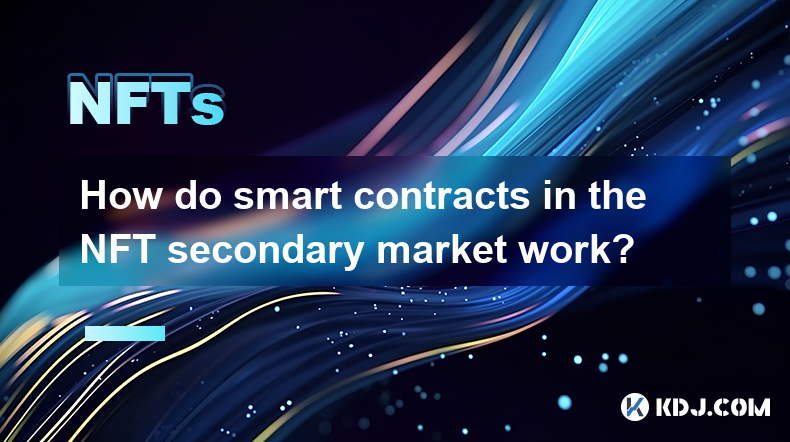
How do smart contracts in the NFT secondary market work?
Apr 03,2025 at 07:14am
Smart contracts play a pivotal role in the NFT secondary market, facilitating seamless transactions and enforcing predefined rules. These self-executing contracts with the terms of the agreement directly written into code are stored on the blockchain. In the context of NFTs, smart contracts automate the buying, selling, and transferring of digital asset...
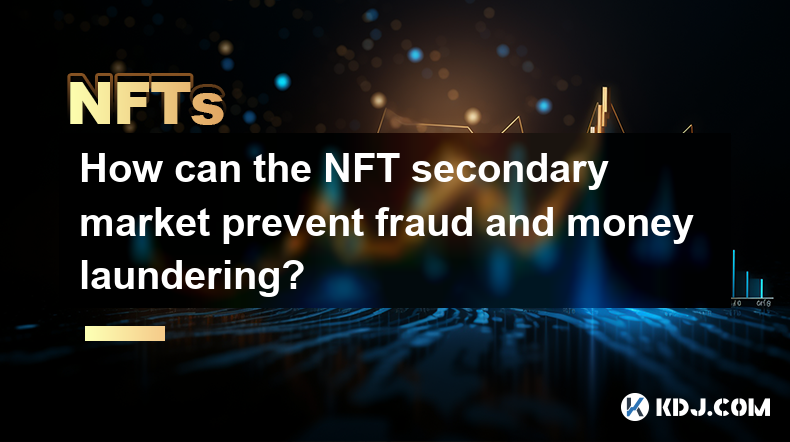
How can the NFT secondary market prevent fraud and money laundering?
Apr 03,2025 at 08:35am
The NFT secondary market has become a thriving hub for digital art and collectibles, but it also faces challenges in preventing fraud and money laundering. To tackle these issues, the market can implement various strategies and technologies to ensure a safer and more transparent trading environment. This article will explore how the NFT secondary market...
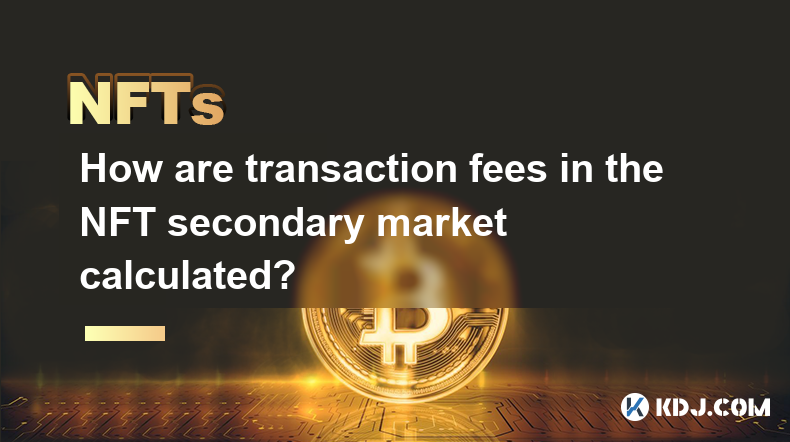
How are transaction fees in the NFT secondary market calculated?
Apr 04,2025 at 05:28am
The calculation of transaction fees in the NFT secondary market is a crucial aspect that both buyers and sellers need to understand. These fees can significantly impact the overall cost of transactions and the profits that sellers can make. In this article, we will delve into the various components that make up these fees, how they are calculated, and w...
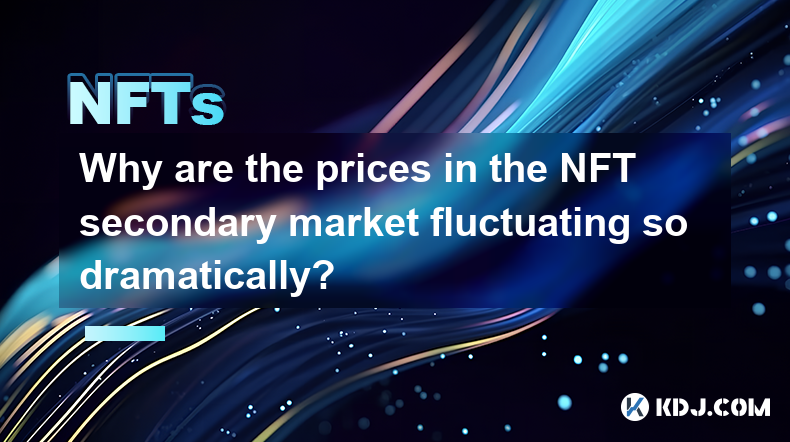
Why are the prices in the NFT secondary market fluctuating so dramatically?
Apr 03,2025 at 10:35pm
The NFT secondary market has been experiencing dramatic price fluctuations, leaving many in the cryptocurrency community puzzled and curious. To understand this phenomenon, it's essential to delve into the factors driving these price movements. From the impact of market sentiment and celebrity endorsements to the role of speculation and the unique natur...
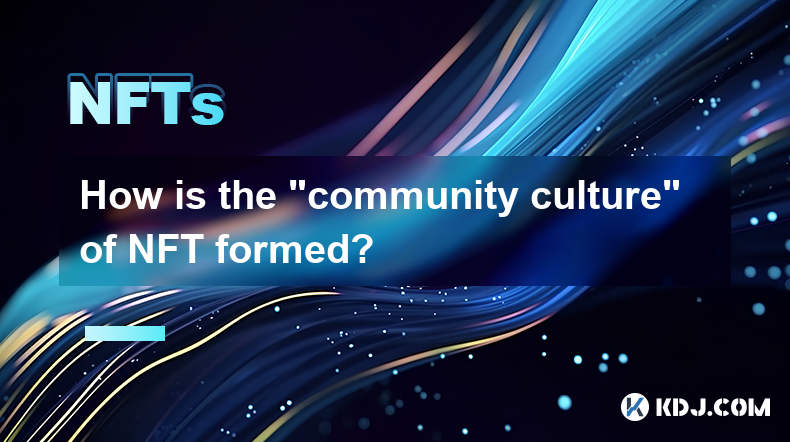
How is the “community culture” of NFT formed?
Apr 03,2025 at 11:07am
The formation of the 'community culture' within the NFT (Non-Fungible Token) space is a fascinating and multi-faceted process. It involves various elements such as shared interests, active engagement, and the creation of a sense of belonging among members. NFT communities often revolve around specific projects or artists, fostering a unique environment ...
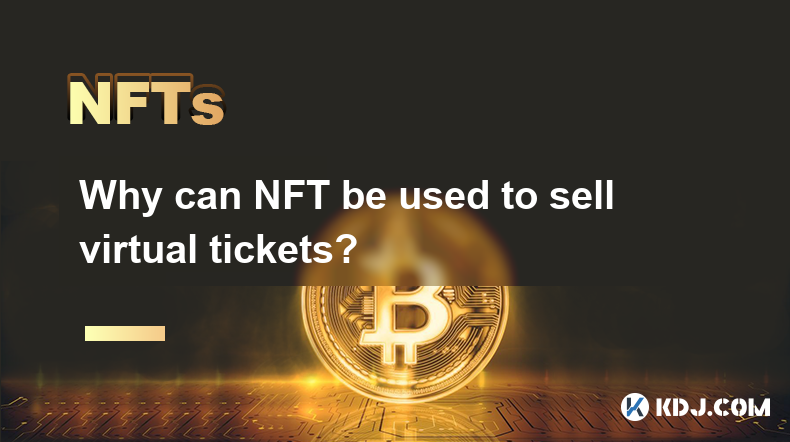
Why can NFT be used to sell virtual tickets?
Apr 03,2025 at 01:35pm
NFTs, or Non-Fungible Tokens, have revolutionized the way we think about digital ownership and value, particularly in the realm of virtual tickets. The primary reason NFTs can be used to sell virtual tickets is their unique nature. Unlike cryptocurrencies such as Bitcoin or Ethereum, which are fungible and can be exchanged on a one-to-one basis, NFTs ar...

How do smart contracts in the NFT secondary market work?
Apr 03,2025 at 07:14am
Smart contracts play a pivotal role in the NFT secondary market, facilitating seamless transactions and enforcing predefined rules. These self-executing contracts with the terms of the agreement directly written into code are stored on the blockchain. In the context of NFTs, smart contracts automate the buying, selling, and transferring of digital asset...

How can the NFT secondary market prevent fraud and money laundering?
Apr 03,2025 at 08:35am
The NFT secondary market has become a thriving hub for digital art and collectibles, but it also faces challenges in preventing fraud and money laundering. To tackle these issues, the market can implement various strategies and technologies to ensure a safer and more transparent trading environment. This article will explore how the NFT secondary market...

How are transaction fees in the NFT secondary market calculated?
Apr 04,2025 at 05:28am
The calculation of transaction fees in the NFT secondary market is a crucial aspect that both buyers and sellers need to understand. These fees can significantly impact the overall cost of transactions and the profits that sellers can make. In this article, we will delve into the various components that make up these fees, how they are calculated, and w...

Why are the prices in the NFT secondary market fluctuating so dramatically?
Apr 03,2025 at 10:35pm
The NFT secondary market has been experiencing dramatic price fluctuations, leaving many in the cryptocurrency community puzzled and curious. To understand this phenomenon, it's essential to delve into the factors driving these price movements. From the impact of market sentiment and celebrity endorsements to the role of speculation and the unique natur...

How is the “community culture” of NFT formed?
Apr 03,2025 at 11:07am
The formation of the 'community culture' within the NFT (Non-Fungible Token) space is a fascinating and multi-faceted process. It involves various elements such as shared interests, active engagement, and the creation of a sense of belonging among members. NFT communities often revolve around specific projects or artists, fostering a unique environment ...

Why can NFT be used to sell virtual tickets?
Apr 03,2025 at 01:35pm
NFTs, or Non-Fungible Tokens, have revolutionized the way we think about digital ownership and value, particularly in the realm of virtual tickets. The primary reason NFTs can be used to sell virtual tickets is their unique nature. Unlike cryptocurrencies such as Bitcoin or Ethereum, which are fungible and can be exchanged on a one-to-one basis, NFTs ar...
See all articles






















































































